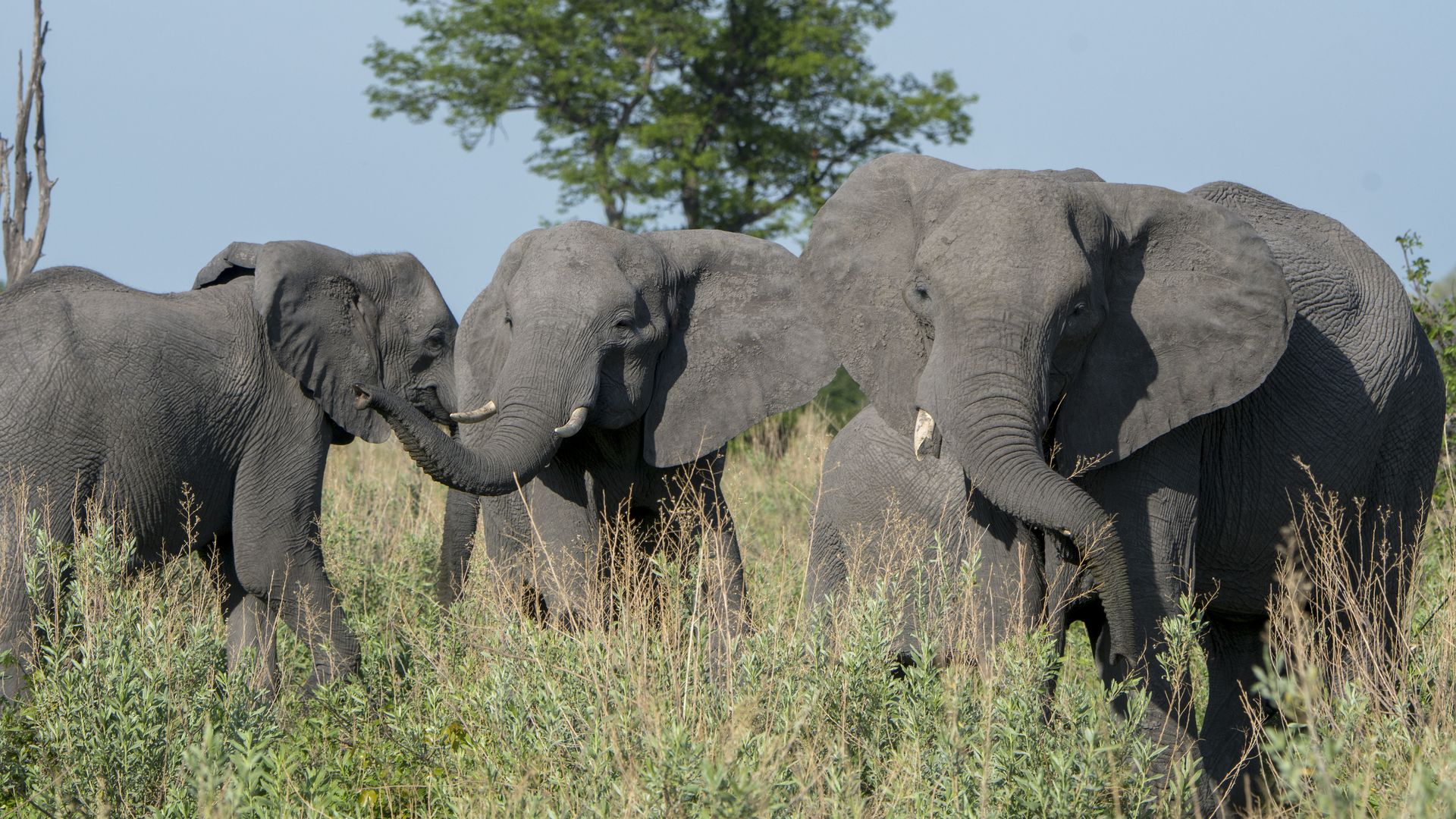Oct 23, 2021 - Science
Study: Ivory trade accelerated "evolution" of tuskless elephants
Add Axios as your preferred source to
see more of our stories on Google.

African elephants in the Gomoti Plains area on the edge of the Gomoti river system southeast of the Okavango Delta, Botswana. Photo: Wolfgang Kaehler/LightRocket via Getty Images
